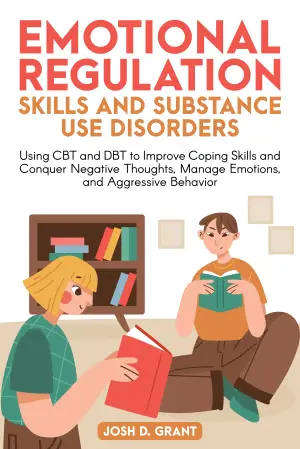It’s a common misconception: only geniuses can excel at writing. Such thinking can intimidate new writers and create a barrier that blocks their stories from reaching others. But here’s the truth—writing is a skill that anyone can develop with practice, persistence, and passion. Nobody limits it to only the intellectual elite.
Table of Contents
The Misconception of Genius
The notion that writing is only for a select few can stem from the distorted lens through which we view successful authors. Think about Shakespeare, James Joyce, or Toni Morrison. We often perceive their work as the product of extraordinary intellect. While their achievements are remarkable, it’s crucial to understand that genius doesn’t come down solely to innate talent. Many of these writers spent years honing their craft.
For instance, Stephen King, whose mastery of suspense made him a household name, encountered a series of setbacks before his debut book reached readers. He often discusses the importance of hard work over sheer genius in his memoir, “On Writing.” His journey illustrates that success in writing is more about persistence than predestination.
The Spectrum of Writing Talent
Let’s take a look at how different writing styles and genres contribute to the idea of genius in writing.
Fiction vs. Nonfiction
In fiction, the lines between genius and hard work can blur. Take J.K. Rowling, for example. She faced numerous rejections before “Harry Potter” found a publisher, proving that determination plays a key role alongside creativity. For nonfiction, writers such as Malcolm Gladwell also rely on extensive research and understanding of complex topics to craft engaging narratives. While their ideas may be innovative, it’s their effort in presenting those ideas to the public that shapes their success.
Genre Blending
Emerging genres, such as young adult, speculative fiction, and genre-bending, also challenge this notion of genius to the test. Writers are experimenting with new forms, styles, and blends of genres. A great example is Colson Whitehead, who won the Pulitzer Prize for two different books across distinct genres, showcasing the adaptability and creative growth writers cultivate through experience and experimentation.
The Weight of Experience
A vital part of writing comes from life experience. This aspect is where aspiring writers should focus their energy, rather than stressing about whether they qualify as “geniuses.”
Storytelling Ability in Everyday Life
The art of storytelling goes beyond published texts. Think of your friend who always has a captivating story from their week or the relative who knows how to make everyone laugh with a funny recollection. Those are everyday narratives, rich with the potential to inspire writers. Even someone who isn’t considered a literary genius can provide raw material that evolves into brilliant writing.
Consider the life of Amy Tan. Her ability to draw from her unique cultural background and the relationships within her family greatly influenced her work. Her novel “The Joy Luck Club” connects personal history with universal themes. Those relationships, rather than inherent genius, shaped the messages in her books—a reminder that authentic experiences yield relatable narratives.
Education and Craft Development
Education plays a crucial role, but it doesn’t mean that only the formally educated can be writers.
Writing Workshops and Courses
Many successful authors attend writing workshops or take writing courses, which often feature peer reviews and feedback. These settings help writers to refine their craft regardless of their background. They demonstrate the power of collaboration and learning from others, key elements that dispel notions of individualized genius.
An example is the Iowa Writers’ Workshop, a prestigious program that has produced numerous bestselling authors. Yet, while many successful writers have attended, equally successful self-taught authors such as Raymond Carver and Zora Neale Hurston prove that personal diligence can deliver similar results.
The Role of Critique
Receiving and providing critiques can further develop a writer’s skill set. For instance, workshops force writers to step outside their comfort zones. They gain insight into their work, resulting in more polished final drafts. This feedback mechanism highlights that writers aren’t working in solitudes; they thrive on interaction and shared knowledge, decoupling individual ability from collective learning.
The Relevance of Passion
Passion is a great equalizer in the writing world. It doesn’t require a genius-level IQ to be deeply passionate about storytelling.
The Fire of Enthusiasm
Writing often springs from a desire to communicate experiences, provoke thought, or evoke emotions in a reader. It is this drive—this innate urge to express oneself—that can lead to impactful storytelling.
A real-world example can be in the domain of fan fiction. Writers in this space may not view themselves as traditional authors or geniuses, yet their creative outputs are significant. Fan fiction communities thrive on enthusiasm, collaboration, and shared interests, allowing writers to develop their skills over time and build confidence in their voice.
Pursuing Daily Habits
Bestselling author Anne Lamott emphasizes the importance of writing “shitty first drafts.” This focus on getting words down on paper without self-judgment acknowledges that mastery doesn’t happen overnight. Establishing writing habits can transform ideas into solid narratives.
Serial writers such as NaNoWriMo participants demonstrate that dedication combined with a supportive community can cultivate skills previously believed to be exclusive to the so-called geniuses of literature.
The Value of Perseverance
If genius exists in writing, it frequently grows from perseverance and resilience.
Embracing Rejection
Successful writers face rejection letters, critique, and setbacks on their path. For many, the ability to transform rejection into motivation is vital. A bestselling author like J.K. Rowling experienced this firsthand, as she faced numerous rejections and continued to submit her manuscript until it found a home. This resilience is often more common than pure brilliance. It also underscores that perseverance stands above all else.
Rewriting and Revision
The writing process often requires extensive revision—a reality that further highlights the value of hard work over supposed genius. Every draft is a stepping stone to the final product. Look at the film adaptations of books like “The Lord of the Rings” or “The Great Gatsby.” These adaptations underwent multiple script revisions and drafts before reaching the big screen. This example reinforces that writing is often an iterative process rather than a linear sprint to genius.
Building a Writer’s Network
Success in writing doesn’t happen in isolation.
Mentorship
Mentorship can provide aspiring writers with guidance and encouragement, opening up opportunities for progress beyond their limits. Seeking out mentors who can provide insight into the publishing industry is invaluable, and it highlights that writing requires both learning and collaboration.
The Power of Community
Joining communities of writers, whether online or offline, enables aspiring authors to exchange ideas and foster creative growth. Through feedback and shared resources, inexperienced writers can thrive just like those who bask in the light of perceived genius.
Online platforms like Wattpad or critique groups on social media allow writers to connect, share their work, and receive feedback from diverse audiences. This community collaboration can lead to improvement, inspiration, and a sense of shared purpose in the literary landscape.
The Impact of Technology
In an age where technology plays a significant role, aspiring writers have unprecedented resources at their disposal.
Online Learning
The rise of online courses and resources has democratized access to quality writing instruction. Aspiring writers can now learn from experts in the field without geographical limitations. YouTube channels, podcasts, and webinars offer numerous resources for honing writing skills.
Self-Publishing
Self-publishing platforms, such as Amazon Kindle Direct Publishing, offer writers the chance to share their creations openly, avoiding traditional publishing restrictions. Even authors initially dismissed as “unqualified” can find their audience through hard work and persistence, turning the idea of genius on its head.
Writers like Amanda Hocking and Hugh Howey achieved remarkable success through self-publishing, proving that talent paired with determination can propel an author into the spotlight—no genius needed.
Acknowledging Diverse Voices
Finally, it’s essential to highlight that writing extends beyond traditional literature to encompass diverse voices and experiences.
Non-Traditional Authors
Many authors might not fit the conventional mold of what a “genius” looks like. Limited representation in publishing frequently silences marginalized voices, causing their stories to remain hidden. This reality shows the need for more open definitions of genius. It also encourages a broader appreciation of talent, vision, and storytelling that comes from varied backgrounds.
As we embrace more diverse narratives, it becomes evident that the act of writing transcends notions of genius, existing as a bridge to understanding and sharing human experiences.
While the conversation surrounding writing can often lead to notions of genius, it ultimately proves that anyone with passion, determination, and a willingness to learn can become a successful writer, shaping their narratives for generations to come.
Additional Information
Many successful writers possess unique traits and habits that contribute to their genius.
- Obsessive Revision: The best writers don’t just write; they rewrite. This process of meticulous editing often takes longer than the initial drafting.
- Cultivating Curiosity: Geniuses tend to have an insatiable thirst for knowledge, often exploring diverse subjects to feed their creativity.
- Understanding Human Nature: Great writers notice moods and habits, which helps them invent figures readers understand and conversations that sound natural.
- Writing Routine: Many accomplished writers adhere to strict writing schedules. This consistency is a key to developing their craft.
- Embracing Failure: Genius writers often view rejection and failure as stepping stones, using each setback as an opportunity to improve.
- Reading Widely: They don’t limit themselves to one genre. Reading across various genres broadens perspective and enhances creativity.
- Journaling: Many writers maintain personal journals, capturing thoughts and observations that may later inspire stories or character development.
- Networking with Other Writers: Geniuses understand that collaboration and sharing ideas with peers can lead to improvement and innovation in their work.
- Diverse Experiences: Exploring various life experiences helps writers when writing rich narratives.
- Mind Mapping: Many writers employ mind mapping as a tool to organize their thoughts and explore concepts visually before beginning a draft.
Frequently Asked Questions (FAQs) Related to Only Geniuses Can Be Writers
Q. Do you need to be a genius to write a book?
A. No, anyone with passion and determination can write a book. Writing is a skill that grows with regular practice.
Q. What if I’m not naturally talented at writing?
A. Writing develops with intention. Through repeated effort and determination, people strengthen their writing skills.
Q. Is it true that only genius people can create complex stories?
A. Complexity in storytelling can come from hard work and creativity, not just intellect. Many storytellers develop their ideas through experience and imagination.
Q. Do famous authors have higher IQs than average people?
A. While some authors may have high IQs, writing success depends on many factors, including dedication, perseverance, and a unique voice.
Q. Can anyone become a great writer, or is it just for a select few?
A. Anyone can strive to be a great writer. Success in writing is achievable through practice, feedback, and a love for storytelling.
Q. Is formal education necessary to become a writer?
A. No formal education is required. Many successful writers are self-taught or have taken informal writing courses.
Q. How can I improve my writing if I’m not a genius?
A. Reading widely, writing regularly, and seeking constructive feedback can significantly enhance your writing skills.
Q. Is writing a matter of intelligence, or does it require imagination?
A. Writing requires imagination, creativity, and the ability to connect with readers. Intelligence can help, but it’s not the only factor.
Q. Are some genres of writing only suited for intellectuals?
A. No genre is exclusive to intellectuals. Writers from all backgrounds can successfully explore any genre, so long as they put in the effort.
Q. Can ordinary people write books that connect with readers?
A. Absolutely! Many readers appreciate authenticity and relatability, which can come from ordinary experiences and perspectives.
Conclusion
Writing is not just for geniuses. While talent can play a role, the truth is that anyone can become a writer with dedication, practice, and a bit of passion. What matters more than innate intelligence is the willingness to learn, improve, and express oneself. So, if you have a story to tell or ideas to share, don’t let the myths of genius hold you back. Pick up your pen, dive in, and start writing!







